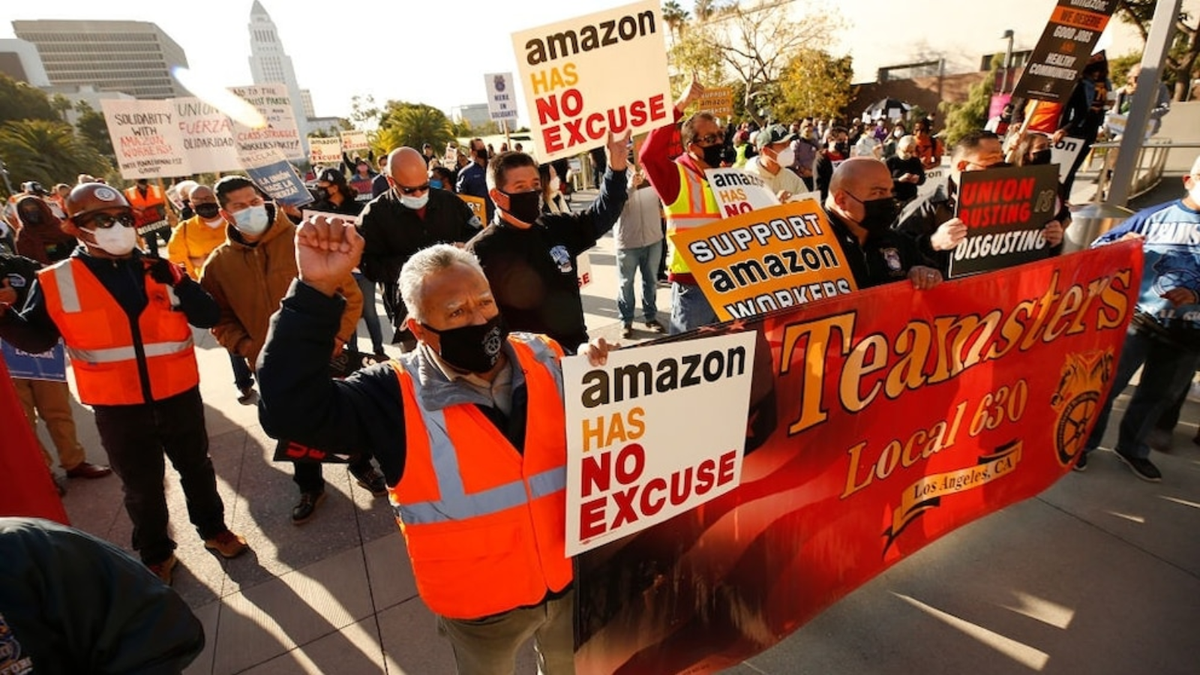The Truth About Meritocracy: How It Holds Back the Working Class
America is often called the land of opportunity, where hard work is supposed to lead to success. However, for over 50 years, the working class has faced tough challenges from systems prioritizing profits over people.

By Anthony Stevens | DayMark News
America is often called the land of opportunity, where hard work is supposed to lead to success. However, for over 50 years, the working class has faced tough challenges from systems prioritizing profits over people. These systems have widened the gap between the rich and everyone else, cut into workers’ rights, and made it harder to get ahead. Let’s break down how we got here and what can be done to change things.
The Myth of “Work Hard, and You’ll Succeed”
We’re told that anyone can succeed if they work hard enough. However, this idea often hides the unfair systems that make success out of reach for many people. The myth of meritocracy convinces us that failure is a personal problem rather than a result of larger systemic barriers. It’s a clever way to justify inequality and keep people from questioning how things really work.
In the 1980s, this myth grew even stronger as policies started favoring big corporations over regular workers. For example, President Reagan broke a major union strike, making it clear that corporate profits mattered more than workers’ rights. Union membership plummeted, with it, the ability to fight for fair wages and benefits.

Globalization and the Disappearing Jobs
Globalization also played a massive role in hurting the working class. As jobs moved overseas, entire communities were left without good-paying work. Forrester Research predicted that 3.3 million U.S. service jobs would be offshored by 2015, and those losses hit workers hard. Harvard economists found that every time manufacturing jobs dropped by 1%, wages for the remaining workers fell by 0.5%.
The effects were devastating in places like Youngstown, Ohio, which became a symbol of economic collapse. Between 2000 and 2007, Ohio experienced its worst job losses since the Great Depression. At the same time, living costs for basic housing, healthcare, and education kept increasing while most workers’ wages stayed flat—or even dropped.
Divide and Distract
The wealthiest Americans didn’t just shape economic policies to their advantage—they also used cultural and political divisions to keep workers from uniting. According to the Hechinger Report, the myth of meritocracy feeds into this by making inequality seem fair. Workers are led to believe that if they’re struggling, it’s their own fault.
Consumer culture also plays a part. Sociologist Robert Bellah explained how a constant focus on materialism and credit-driven lifestyles distracts people from pushing for systemic change. Instead of working toward long-term solutions, many workers are stuck chasing short-term rewards.
How Workers Can Fight Back
Even with all these challenges, there’s hope. Rebuilding unions is one of the most effective ways to fight back. Recent wins, such as the successful formation of unions by Amazon and Starbucks workers, show that collective action still works. Grassroots movements like Fight for $15 have also proven that pushing for change—like raising the minimum wage—can deliver actual results.
Other solutions include worker-owned businesses. For example, the Evergreen Cooperatives in Cleveland show how shared ownership can give workers stability and control over their future. Local investment initiatives can also empower communities to reclaim economic power.
A Better Future Is Possible
For the working class to thrive, it’s crucial to reject the myths dividing us and instead focus on our shared struggles. This means rebuilding solidarity and pushing for stronger protections for workers, fairer taxes, and policies that benefit everyone—not just the wealthy few.
The time to act is now. Together, we can create a more fair and just society—not just for ourselves but also for future generations.
This article is licensed under Creative Commons (CC BY-NC-ND 4.0), and you are free to share and republish under the terms of the license.
At DayMark News, we are committed to exposing the rise of authoritarianism and its threat to democracy. In a time when disinformation spreads like wildfire and democratic institutions face relentless attacks, we need your support to keep the fight alive.
Investigative journalism is our weapon against authoritarian ideologies. We delve deep to uncover the truths others would rather keep hidden, while providing actionable resources to empower individuals like you to defend our democracy.
We believe in transparency, integrity, and the power of a well-informed public. But maintaining a platform dedicated to fearless reporting and mobilization requires resources. We refuse to bow to corporate interests or compromise our mission. That's why we turn to you — our community.
Every donation, big or small, helps us continue our work. With your support, we can produce the in-depth analyses, breaking news, and educational tools needed to resist the rise of extremist movements and protect democratic values for future generations.
This fight belongs to all of us. Together, we can ensure that democracy not only survives but thrives. Please consider making a contribution today to keep DayMark News strong and independent.
Donate Now: Because Democracy Can't Defend Itself.

 Donate
Donate



